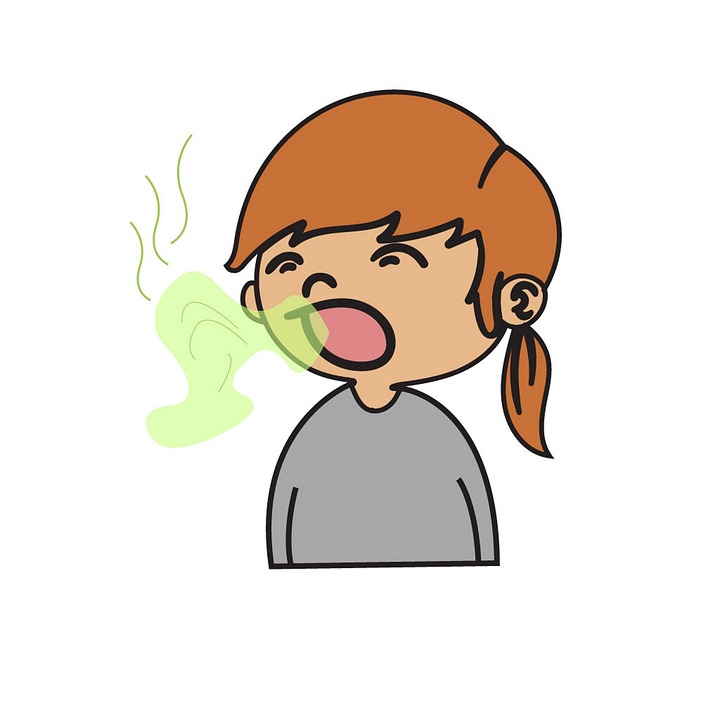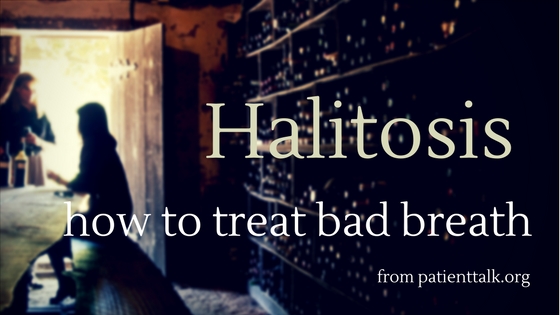Treatment for bad breath (halitosis) will depend on its cause.
Usually, the most effective treatment is improving your dental hygiene. As part of your daily routine, you should:
floss between your teeth
brush your teeth and gums
clean your tongue
You may want to consider investing in an electric toothbrush, which can make cleaning easier and more effective.
Cleaning your teeth
Your dentist will probably recommend that you brush your teeth at least twice a day using fluoride toothpaste.
Below are some tips on how to brush your teeth and keep your mouth healthy. You should:
use dental floss to clean between your teeth and remove trapped food that could cause tooth decay – brushing on its own only cleans about 60% of the tooth’s surface
choose a small or medium-sized toothbrush with soft, multi-tufted synthetic bristles
replace your toothbrush every three to four months
brush your teeth for at least two minutes – you could keep a toothbrush at work or school so you can brush your teeth after lunch
brush all areas of your teeth, paying particular attention to where your teeth and gums meet – your dentist or oral hygienist may recommend using a special single-tufted brush for specific problem areas of your mouth
use a separate toothbrush or a tongue scraper to lightly brush your tongue – some toothbrushes have a tongue cleaner on the back of the brush head
avoid brushing your teeth for 30 minutes after drinking an acidic drink, such as fruit juice, or eating acidic fruit, such as oranges, to help prevent tooth abrasion
Your dentist may recommend that you rinse your mouth daily using an antibacterial or anti-odour mouthwash. This shouldn’t replace brushing, but can be included as part of your daily routine.
Read more about dental health and how to keep your teeth clean.
Cleaning dentures
If you wear dentures, you should take them out at night to give your mouth a chance to rest. Clean your dentures thoroughly before putting them in the next morning:
don’t use toothpaste to clean your dentures as it can scratch the surface and cause stains
clean your dentures thoroughly using soap and lukewarm water, denture cream, or a denture-cleaning tablet
use a separate toothbrush to clean your dentures
Your dentures should stay clean and fresh if you follow this routine. It will also help prevent the build-up of plaque, which can cause bad breath.
Fresh breath tips
To help keep your breath fresh, you should:
give up smoking
eat a healthy, balanced diet and avoid eating strongly flavoured or spicy food
cut down on sugary food and drink as it can increase the amount of bacteria in your mouth
reduce your alcohol consumption
cut down on coffee
drink plenty of water to help prevent your mouth becoming dry
chew sugar-free gum after eating to stimulate the flow of saliva – this will help clean away any remaining food particles
You should visit your dentist for regular check-ups. Having regular dental check-ups will ensure any plaque and calculus – previously known as tartar – is removed from your teeth, particularly in areas that are difficult to reach.
Your dentist can recommend the best way to clean your teeth and gums, and point out areas you might be missing. They can also identify any signs of gum disease and ensure early treatment.
Gastrointestinal problems
Bad breath can be caused by a gastrointestinal problem, such as an H. pylori infection or gastro-oesophageal reflux disease (GORD). You may be referred to a gastroenterologist.
The treatment recommended will depend on the type of gastrointestinal condition you have. For example, if you have a stomach ulcer, you may need a combination of two or three different antibiotics and a proton pump inhibitor (PPI). This is known as eradication therapy.


